Contents
Whether you are considering an IVA or perhaps it is something that has been recommended to you, you will no doubt have many questions to ask. In this section, we will try to answer as many of the frequently asked questions as possible.
What is the role of an insolvency practitioner?
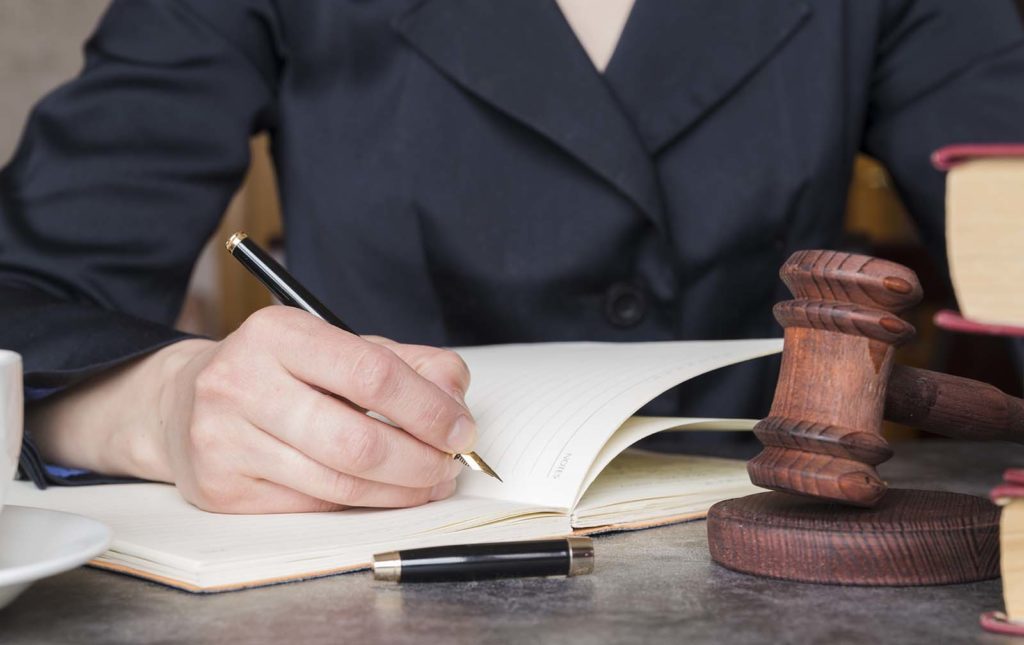
The insolvency practitioner will negotiate the setup and look after management of a successful IVA application. They will become the point of communication for all creditors which can be a relief to those entering an IVA.
Would you qualify for an IVA?
The idea behind it is that the individual involved has a regular income which they can use to pay back part of their debts. On occasion it will be possible to set up an IVA if lump-sum payments are expected but not all individuals will qualify.
Do creditors need to vote on approval of an IVA?
Ultimately creditors have control over whether you can enter an IVA but this is generally preferable to bankruptcy where limited payments may be available. In order to approve an IVA at least 75% of creditors (by value of debt) would need to vote in favour.
Generally, so long as the repayment plan stands up to scrutiny, the vast majority of creditors will favour such an arrangement. In some cases, there may be additional conditions and modifications made to the original proposal.
What type of debts can be included in an IVA?
There are many different types of debt which can be included such as:
- Credit card debt
- Overdrafts
- Personal loans (unsecured)
- Local authority tax arrears (often difficult in practice)
- Income tax/national insurance contributions (often difficult in practice)
- Retail debt such as catalogue accounts
- Gambling debts (conditions attached)
This is just an example of the different types of debt which can be included in an IVA although any additional debts would be considered on a case-by-case basis. It is also worth noting that HMRC and local government authorities, for example, might not vote in favour of an IVA. They tend to look for much swifter settlement of arears and may try to agree a separate repayment plan.
What type of debts cannot be included in an IVA?

Unfortunately for those in financial trouble, there are some types of debt which cannot be part of an IVA such as:-
- Court fines
- CCJs
- Child maintenance/support arrears
- Types of car finance (e.g. HP)
- Student loans
There will also be other types of debt similar to the above which cannot be included in any arrangement.
Would you lose your car under an IVA?
While unlikely that your car would be sold under an IVA, as very often it is the only means of getting to work, there are exceptions to the rule. An insolvency practitioner may ask you to sell a relatively expensive car where a less expensive vehicle would be more practical. There is a key factor here, stopping an individual from getting to work and earning income is counter-productive.
Is there a minimum monthly payment?
IVAs are determined on an ability to pay as opposed to a set minimum payment level. It is the responsibility of the insolvency practitioner to propose a level of payment which offers a reasonable return to creditors but is also affordable to their client.
Is there a maximum monthly payment?
The repayment terms of an IVA will be wholly dependent on the individual’s financial status and ability to pay. As such, there is no maximum monthly payment. If your finances were to improve significantly, the insolvency practitioner may request an increase in payments.
Receipt of lump-sum funds during IVA
An individual may come into money through many different routes including for example PPI mis-selling compensation or funds/assets left in a will. In this situation the assets/funds would likely be requested by the insolvency practitioner so that additional payments can be made to creditors.
How long does an IVA last?
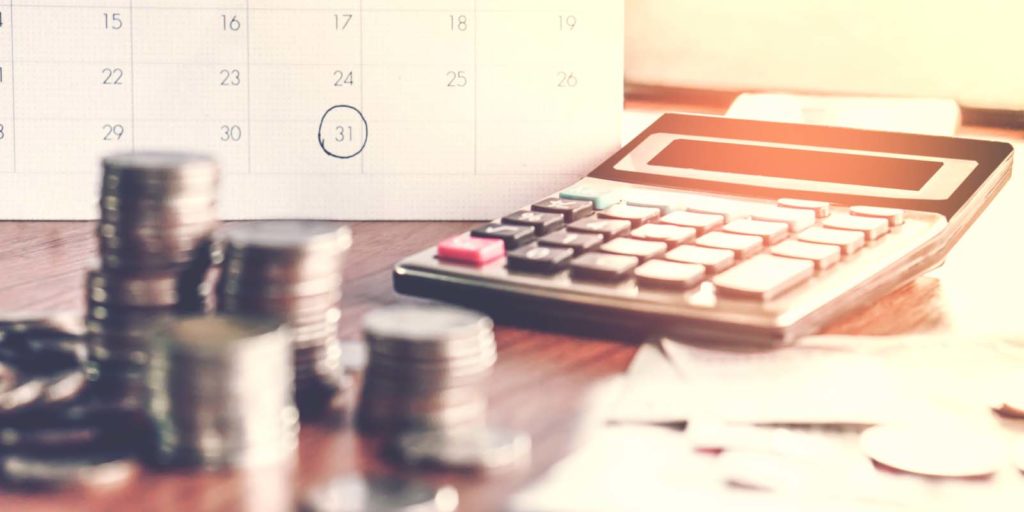
The vast majority of IVAs will last for five years although there is the opportunity to extend by 12 months (and longer) in certain circumstances. During an active arrangement, it is essential that payments are made on time otherwise the agreement may be extended, terminated or other legal avenues explored. This is why the initial setup process will only take into account monthly repayments which are affordable for the individual.
What happens after an IVA ends?
So long as you have maintained payments throughout the duration of the IVA, all outstanding debts will be written off. You will receive a summary of the situation from the insolvency practitioner once the arrangement has ended.
Would an IVA impact my credit rating?
The agreement of an IVA is an important event and will remain on your credit file for a minimum of six years from the date of approval. If an arrangement is concluded early it will still remain on file for the six-year period. Where an extension is agreed, beyond 5 years, it will stay on file until the arrangement has been completed.
Is an IVA the right choice for you?
There is no one size fits all when it comes to IVAs and it is therefore very important to take professional advice at the earliest opportunity. There may be alternatives to consider such as a DMP, bankruptcy, etc.
What is insolvency?
The term insolvency refers to an individual/company that is unable to repay their debts on terms agreed with their creditors. In this situation the individual/company will often be referred to as insolvent and they will need to take action to rectify this
What are the specific criteria for an IVA?

In order to qualify for an IVA you must fulfil the following criteria:-
- Owe money to at least one creditor
- Have debts which you are unable to afford
- Be struggling with your monthly repayments
- Be in receipt of regular disposable income to cover proposed payments
Can I do an IVA myself?
No. Unfortunately, an IVA is a legal debt solution and as such it will be administered by an insolvency practitioner appointed by the courts. As they have no conflict of interest with creditors/debtors they are able to carry out their duties in the best interest of creditors and debtors.
Is an IVA better than bankruptcy?
There is no hard and fast rule regarding debt solutions and whether an IVA or bankruptcy may be more appropriate. There is the possibility of protecting some assets with an IVA, where they may likely be liquidated with a bankruptcy. However, where there is no disposable income over and above living expenses there may be no option but to seek bankruptcy proceedings. It is important to take professional advice at the earliest opportunity so that you can choose the best debt solution for your situation.
What are the pros and cons of an IVA?
There are numerous pros and cons with regards to an IVA such as:
Main advantages:
- Debts contributions consolidated into one monthly repayment
- All remaining debts are written off on the conclusion of the arrangement
- You are afforded legal protection from your creditors
- Normally all debt interest and charges are frozen (there can be some exceptions to the rule)
- Upon conclusion of the agreement, normally five years, you would be debt-free
- Upon completion, you can begin repairing your credit rating
- Fairly quick to set up after receiving agreement from creditors
- Potentially suitable for many different people such as married, single, business owner, tenant, etc
Main disadvantages:
- You may be obliged to release equity from your home to cover part of your debts
- If your situation changes, and you can’t afford previously agreed repayments, your creditors can withdraw from the arrangement and take alternative action to recover debts
- An IVA will stay on your credit file for a minimum of 6 years (and beyond if extended)
- A failed IVA may result in your creditors taking alternative action to recover debts
- You may need to increase your IVA payments if your finances take a turn for the better
- Future windfalls payments, such as PPI compensation or an inheritance, will likely be written into your agreement and could be used to increase repayments to creditors
How much does an IVA cost?

The cost of setting up an individual voluntary arrangement will vary across different advisers with some requiring an upfront payment. With regards to actual IVA contributions these will be dictated by the debtor’s financial position and the minimum payment creditors will agree to. An element of monthly repayments will go towards insolvency practitioner admin costs. There is no hard and fast rule with regards to contributions and admin costs.
Will my IVA be accepted?
In order for your IVA application to be accepted you will need to clarify your financial situation, calculate your disposable income and offer a realistic monthly repayment. The application will be carried out by your insolvency practitioner as they understand what type of proposals creditors are likely to accept and reject. In order for an application to be accepted it must be approved by at least 75% (by debt value) of creditors.
What happens if my IVA proposal is rejected?
Where you are unable to gain the support of at least 75% (by debt value) of your creditors, your IVA application will fail. This is not necessarily the end of the negotiations. Adjustments to monthly repayments or perhaps the signing over of potential compensation claims in the future (for example PPI) may prompt creditors to reconsider and vote in favour. An initial rejection is not the end although if further negotiations fail then alternative debt recovery action will likely be taken by creditors.
Will my partner be affected by my IVA?
In theory, your IVA will have no impact on your partner although there are circumstances which need to be clarified. For example, when working out your monthly expenses your creditors will demand a fair split of expenses between you and your partner. This will be based upon regular income and would see your partner apportioned a “reasonable” level of living expenses going forward – this may be higher than their historic contributions.
When it comes to joint debts this is where many may be surprised. Legally each party in a joint debt arrangement is liable for the full amount in the event that the other person is unable to pay. As a consequence, it is highly unlikely that someone applying for an IVA will be able to include their “portion” of joint loans. Unfortunately, creditors would see it as the legal obligation of the solvent partner to cover debt repayments as contracted.
Would my IVA impact the credit rating of those living in the same house?
There is a general misconception that an IVA will also impact the credit rating of those living in the same house. The only way that an IVA could impact others living in the same house is if they had any form of joint debts.
Can I still get credit in an IVA?
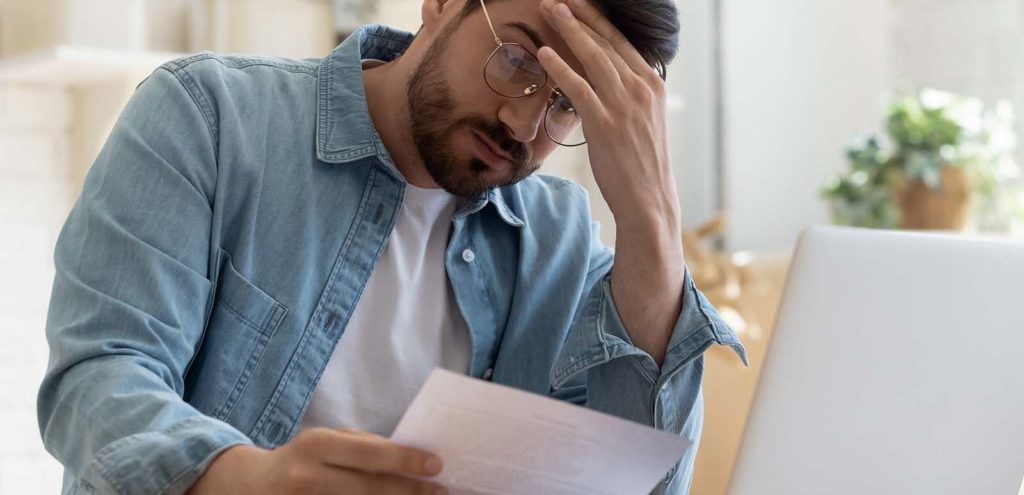
Any proposed credit arrangements must be cleared by your insolvency practitioner before an application is made. In relation to Internet contracts, mobile phone contracts and the like, these are legally recognised as credit agreements but if payments are maintained they would likely be allowed. Any additional credit applications would be minimal and likely attract high interest charges due to a damaged credit rating.
Can I retain my mobile phone/Internet contract in an IVA?
Legally mobile phone/Internet contracts are classified as credit agreements and would in theory come under control of your insolvency practitioner. However, as long as you maintain regular payments to your provider as agreed there is every chance your contract will continue. Attempting to take out a new mobile phone/Internet contract while in an IVA may be more challenging because of damage to your credit rating.
Will I be allowed a bank account in an IVA?
You will still be allowed a bank account in an IVA but there are circumstances in which you may have to seek alternative arrangements. For example, if you had a bank account with one of your creditors they would likely refuse to deal with you. In the event that they agreed to maintain your bank account there is every chance they would remove any monies available to cover outstanding debts with them. It is therefore advisable to seek an alternative bank account with an unconnected third-party who is not a creditor.
How will an IVA affect my mortgage?
Under the terms of an individual voluntary arrangement, your home is protected and you would continue to make mortgage payments as agreed in your creditor’s budget proposal. There may be circumstances where you might be asked to release equity from your property if a remortgage/refinancing was possible. In relation to taking out a new mortgage whilst in an IVA this would not be possible.
Can I sell my house whilst in an IVA?
While there is nothing stopping you selling your house while in an individual voluntary arrangement, the use of sale proceeds would be covered by your IVA terms and conditions. An element of any equity could be transferred into your agreement and used to increase debt repayment contributions. It is unlikely that your insolvency practitioner would demand receipt of all equity proceeds although any split would require their consent. For example, your insolvency practitioner may allow you to retain sufficient funds to use as a deposit on a rental property.
What happens to my assets in an individual voluntary arrangement?

When putting forward your proposal for an IVA you need to make your insolvency practitioner/creditors aware of any sizeable assets. Where an asset is deemed as non-essential you may be asked to arrange a sale and use funds to repay creditors. For example, if you have an expensive vehicle there is a chance you may be asked to downsize to reduce running costs. As many people require their vehicle to get to and from work, bringing in funds to cover IVA payments, it is unlikely you would be barred from owning a vehicle. This would be counter-productive for your creditors.
What happens to my pension fund in an IVA?
There are two different types of pension fund to consider, state pension and private pension. Under no circumstances can creditors redirect state pension payments to cover your debts. The situation with a private pension is slightly different. Where you are making contributions, your creditors may request these cease and the funds are used to repay outstanding debts. In the event that you receive a lump sum pension payment before the end of your IVA this may be classed as a “windfall” and become part of your individual voluntary arrangement, to be distributed to creditors. If in any doubt regarding pension assets you should approach your insolvency practitioner.
Do I require employment income to do an IVA?
While there is no formal requirement to be in employment when in an individual voluntary arrangement you will need to have a source of regular income/benefits. These must cover living expenses and leave a surplus to go towards your IVA payments. If you have no regular income then an individual voluntary arrangement would not be suitable and alternative options would be considered.
Would an IVA affect my employment?
In theory, there is no reason for you to inform your employer about an IVA although you may be legally obliged if employed in certain professions. A profession such as finance, law, property and accountancy may bar those in an IVA from practising or holding certain positions. There are some occasions where continued employment may be allowed but with clearly defined restrictions.
Do I need to tell my employer about an IVA?
Aside from those professions where there are restrictions on those in an IVA there is no legal obligation for you to inform your employer. Some employees may be able to help with regards to emotional/financial support.
Are IVA arrangements made public?

While approved individual voluntary arrangements are published in the Stubbs Gazette, available to insolvency and financial professionals, unlike bankruptcy proceedings they are not published in local newspapers. Therefore, there is a greater degree of privacy with regards to an individual voluntary arrangement compared to bankruptcy. However, anyone in an IVA will also be added to the Insolvency Register which is available to the general public.
How is the insolvency register involved in an IVA?
The Insolvency Register is a publicly available register which contains information on a whole host of agreed debt solutions such as IVAs. Those in the midst of such arrangements will remain on the register until expiry. When the insolvency solution is finished you will be removed from the register. In some circumstances, it can take time to remove your details and it is worth monitoring the situation. You may need to remind your insolvency practitioner if there are excessive delays.
What happens if I miss an IVA payment?
If at all possible it is advisable to maintain your repayment timetable because any missed payments can have serious consequences. That is not to suggest that your creditors would immediately seek alternative debt recovery proceedings but there may be repercussions. If your financial situation has changed, perhaps there has been a delay in receiving your regular income, you must advise your insolvency practitioner as soon as possible. Creditors will be more sympathetic if you are proactive rather than reactive.
Can I revise my IVA payments?
Your initial IVA repayment plan will be based upon your finances at the time the arrangement began. If you experience a material change in your finances, perhaps an increase or reduction in your income, you can apply to revise your payments. This would be done through your insolvency practitioner who would report to your creditors with the change in circumstances. Whether or not your creditors would accept any such revision would depend on the proposed level of repayments.
Do I need to report an increase in my employment earnings?
Under IVA regulations your insolvency practitioner is obliged to carry out an annual review of your finances. However, if in the meantime you are in receipt of a significant increase in your employment earnings you should advise your insolvency practitioner as soon as possible. In the event that they were to hear of a significant change in your finances at a later date, this could endanger the future of your IVA.
Can I do an IVA if I have CCJ’s?
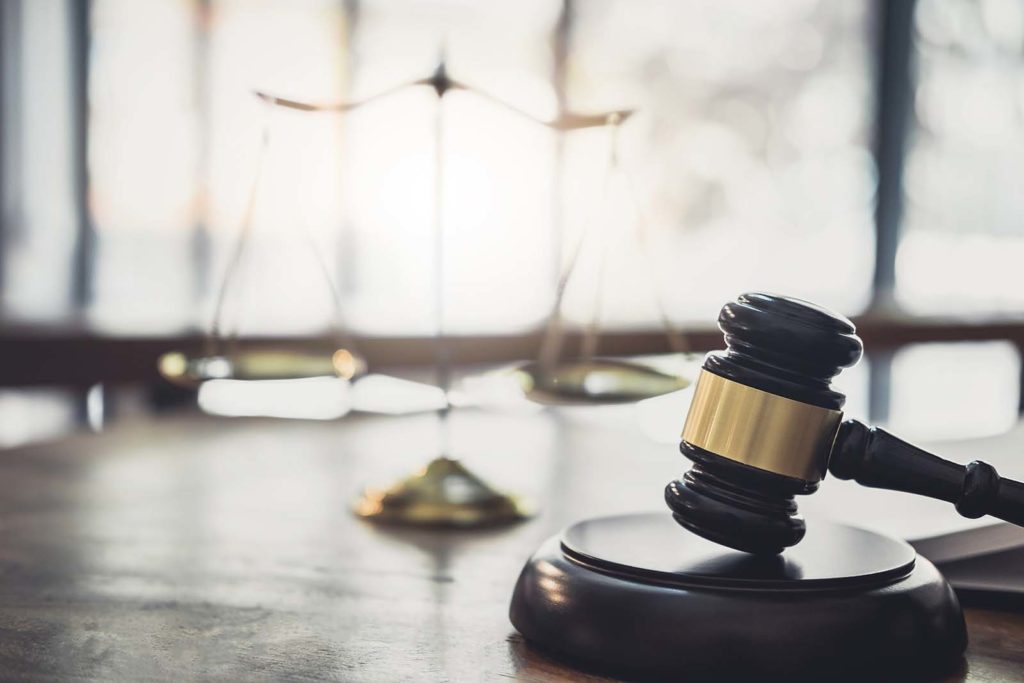
If a CCJ has been agreed by the courts then the associated debt cannot be added to your IVA. You would still be expected to make separate repayments to the CCJ per the court order.
Can my debts with a guarantor be added to an IVA?
While you would need to include any debts with a guarantor in initial discussions with your creditors, it is highly unlikely this type of arrangement would be included in an IVA. As the debt is guaranteed by a third party your creditor could, in theory, invoke this guarantee and demand repayment in full. Whether they would take such direct action is debatable – they may allow the guarantor to take over your payment schedule.
Where you have given a personal guarantee against a third party/business loan this will be included as part of your agreement. If the debt has not been “called” there would be a nominal value accredited to this debt but if it was to be called during the term of your arrangement then the debt would be included.
Is there a minimum debt figure to apply for an IVA?
There is no official minimum figure needed to apply for an individual voluntary arrangement but in general, this option tends to apply for debts in excess of £10,000. On occasion, you will see IVAs covering debts as low as £5,000 but with lower debts, there may be more appropriate options such as a debt relief order. If in doubt, take professional guidance.
Does my partner need to know about an IVA?
While there is no statutory obligation to inform your partner about an IVA many people will. In reality their income and contributions to the household budget will be taken into account. In the event that you have joint debts they will most certainly need to be made aware of the potential repercussions. As any debt solution can be stressful many people find it useful to have the support of their partner.
Can I do a second IVA if my finances fail again?
There is no statutory limit on the number of arrangements that you can apply for whether your previous plan was successful or failed. An individual voluntary arrangement should be seen for what it is, an option for your creditors to recover as much of your outstanding debt as possible within a controlled environment. Obviously, your creditors and insolvency practitioner would need to authorise a second IVA but there is no legal obstruction to this.
Would creditors recover my partner’s wages for my IVA?
In the event that both you and your partner were insolvent then it is possible that you may both have an individual IVA “interlocked” to form a quasi-joint agreement. In practice, there is no such thing as a joint IVA but by “interlocking” two individual plans your insolvency practitioner and creditors would take into account your partner’s wages. Even if your partner was solvent your IVA would need to take into account shared expenses and shared debts to work out a viable and fair budget. However, unless your partner had their own individual voluntary arrangement there is no path by which creditors can recover your partner’s wages.
Can I reapply for an IVA after initial rejection?
While your insolvency practitioner and creditors will consider reasonable IVA applications based on your budget and proposed repayment plan, there will be occasions where an application is rejected. This may be a consequence of an unrealistic budget, relatively low repayments or failure to include surplus assets (or indeed outstanding compensation claims) in any proposed settlement. However, even if your initial IVA application was rejected you can still continue negotiating with your creditors – there is still the option to reapply.
How do I get paid from my employer in an IVA?
There is a common misconception that your employment income is somehow controlled by your insolvency practitioner and even paid into your IVA. This is not the case. You will still be in full control of your employment income, paid into your bank account, although you will be expected to make payments in accordance with the agreed repayment plan.
Can self-employed people do an IVA?
The option of individual voluntary arrangements is open to the self-employed although you would need to ensure that your tax returns are kept up-to-date. This would form part of the basis of your budget and repayment plan. Any monies owed to HMRC would also need to be taken into account. Remember, in order to begin an IVA you require a minimum 75% of creditors (by debt value) to vote in favour.
Will I lose my home if I take out an IVA?

The vast majority of those who enter into an IVA will be allowed to retain their home so long as they maintain mortgage payments. There may be occasions where a remortgage might be suggested in order to release equity/additional funds to repay creditors but this doesn’t always happen. Other debt solutions such as bankruptcy may see a very different outcome with regards to homeownership which is why it is important to act as soon as possible if you foresee financial difficulties.
Can I get a loan/credit in an IVA?
As a rule of thumb those in an IVA are not generally allowed to take out additional credit and in reality your credit score will take away this option. There may be exceptional circumstances, perhaps due to unforeseen expenses, where you can apply for a relatively small loan. This would be at the behest of your insolvency practitioner who must be informed of your intent to apply for new credit.
Would I be able to get a mortgage in an IVA?
While there is no legal bar to those applying for a mortgage in an IVA you would need the express permission of your insolvency practitioner and creditors. There may be some circumstances where it would be in the best interests of your finances to apply for a mortgage but these tend to be few and far between. It is also worth noting that not only would you require a deposit, with a lack of 100% mortgages at the moment, but your damaged credit rating would likely exclude you from traditional mortgage lending facilities.
In the event that you pursued a mortgage this may prompt questions from your creditors as to why the additional funds were not being paid towards your debts.
What are my restrictions in an IVA?
As you might expect, there are some restrictions with regards to those in an IVA. You will need to live within your agreed budget and access to further credit may only be allowed in exceptional circumstances. There are also certain occupations and organisations which prohibit/restrict the role of those in an IVA. As a director of a company, there may also be restrictions written into the articles of association which would need to be adhered to.
What type of paperwork is required?
When applying for an IVA you will need to supply the following paperwork:-
- All credit account statements
- Bank statements including loan accounts
- Credit card balance statements
- Store card balance statements
- Mortgage statements
- Details of rental arrangement
- Hire purchase agreements
- Payslips going back three months or P60 if more relevant
- Details of additional sources of income
- Any assistance with childcare costs
- Tax returns for those in self-employment
- A list of assets
- Details of any investments
- Proof of identity
- Details of any company directorships
- Copy of latest company report and accounts where applicable
- Any debts, savings, investments or assets not covered above
When investigating an IVA you will need to provide details of income, expenditure, savings, assets and investments to your insolvency practitioner. Failure to provide all relevant details would not be well received by your creditors and could lead to a rejection of your application.
Can I exclude some debts from an IVA?
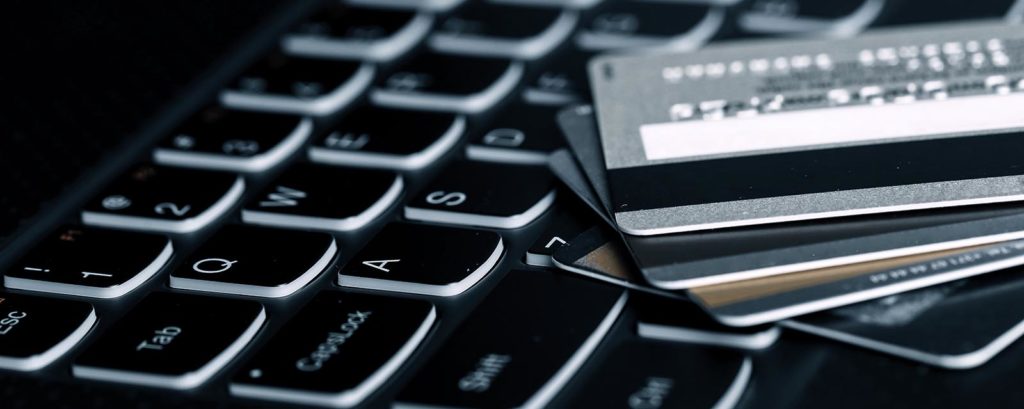
While there are some exceptions to the rule, in general, all of your creditors must be involved in your agreement so the treatment is fair and equal across the board. Potential exceptions include debts to your employer and ongoing finance such as a mortgage. Obviously, any debts excluded from your IVA would not receive a share of your IVA payments.
Would I need to pay all of my disposable income into an IVA?
The simple answer is no. There is no point in your creditors demanding all of your disposable income as a relatively minor expenditure in the future could cause your IVA to fail. On occasion, some creditors might allow you to save a relatively small amount on a regular basis to cover unexpected expenses going forward. In effect your own “rainy day fund”.
How long does an IVA remain on my credit file?
Details of an individual voluntary arrangement will remain on your credit file for a minimum of six years or the full term of an extended IVA. Even in the event that it was less than five years, or paid off early, details would still remain on your credit file for a minimum of six years.
Do I need to sign assets and bank accounts over to an IVA?
An IVA is an agreement with your creditors to make regular repayments towards outstanding debts. This arrangement does not require you to sign over assets or bank accounts to your insolvency practitioner. However, there may be occasions where asset sales could be considered to raise additional funds to repay outstanding debts.
Am I allowed to save with an IVA?
While you would need to disclose any savings as part of your budget plan, with significant funds potentially used to repay debts, some creditors will encourage a small element of monthly savings going forward. This ensures that in the event of unforeseen expenses in the future this would not impact your ability to maintain IVA repayments and potentially threaten the future of your debt solution.
Would an IVA affect my business?
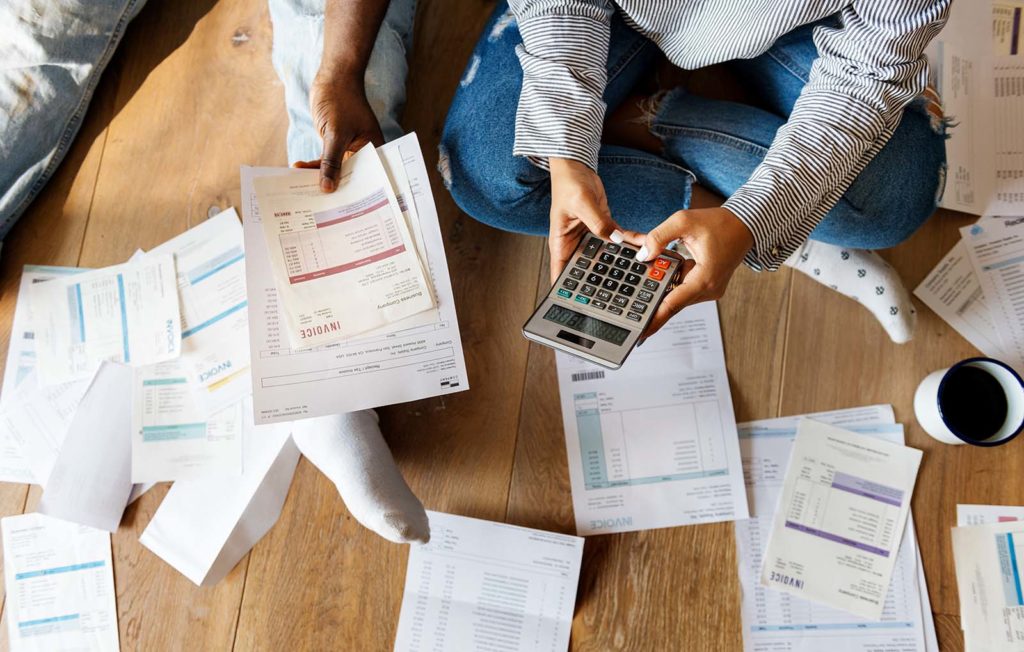
Assuming that your business is viable and all appropriate records are up-to-date it is not a foregone conclusion that an IVA would affect your business. The situation is different if for example you have given personal guarantees on business finance. In this instance the debt would be included in your IVA and business creditors made aware of the situation.
Could an IVA affect my partner’s assets?
Any assets solely in the name of your partner would not be impacted by your IVA. Where assets are held jointly they may be considered for potential sale. This would liquidate your share of joint assets to finance partial/full repayment of outstanding debts.
Can I cancel an IVA?
In theory, you can cancel an IVA at any time. If an application was cancelled before inception then your creditors would likely seek alternative action to recoup outstanding debts. If you cancelled an active IVA then this would be noted as “failed” on your credit records leaving creditors to pursue alternative debt recovery arrangements.
It is not advisable to cancel an IVA unless there is no other option. In the event that your financial situation has changed then you should advise your insolvency practitioner immediately. There may be an opportunity to approach your creditors about reducing payments to a more affordable level. In the event, revised payments were deemed too low to be viable, or there was a degree of uncertainty, the application for change may be rejected and the IVA would fail.
Would PPI compensation be included in an IVA?
There are various terms and conditions associated with individual voluntary arrangements. It is possible that your insolvency practitioner/creditors would require a formal agreement to transfer any future compensation, including PPI, to your IVA. On occasion, it may be extended if there is a likelihood of compensation payment in the short term which could be used towards the repayment of outstanding debts.

